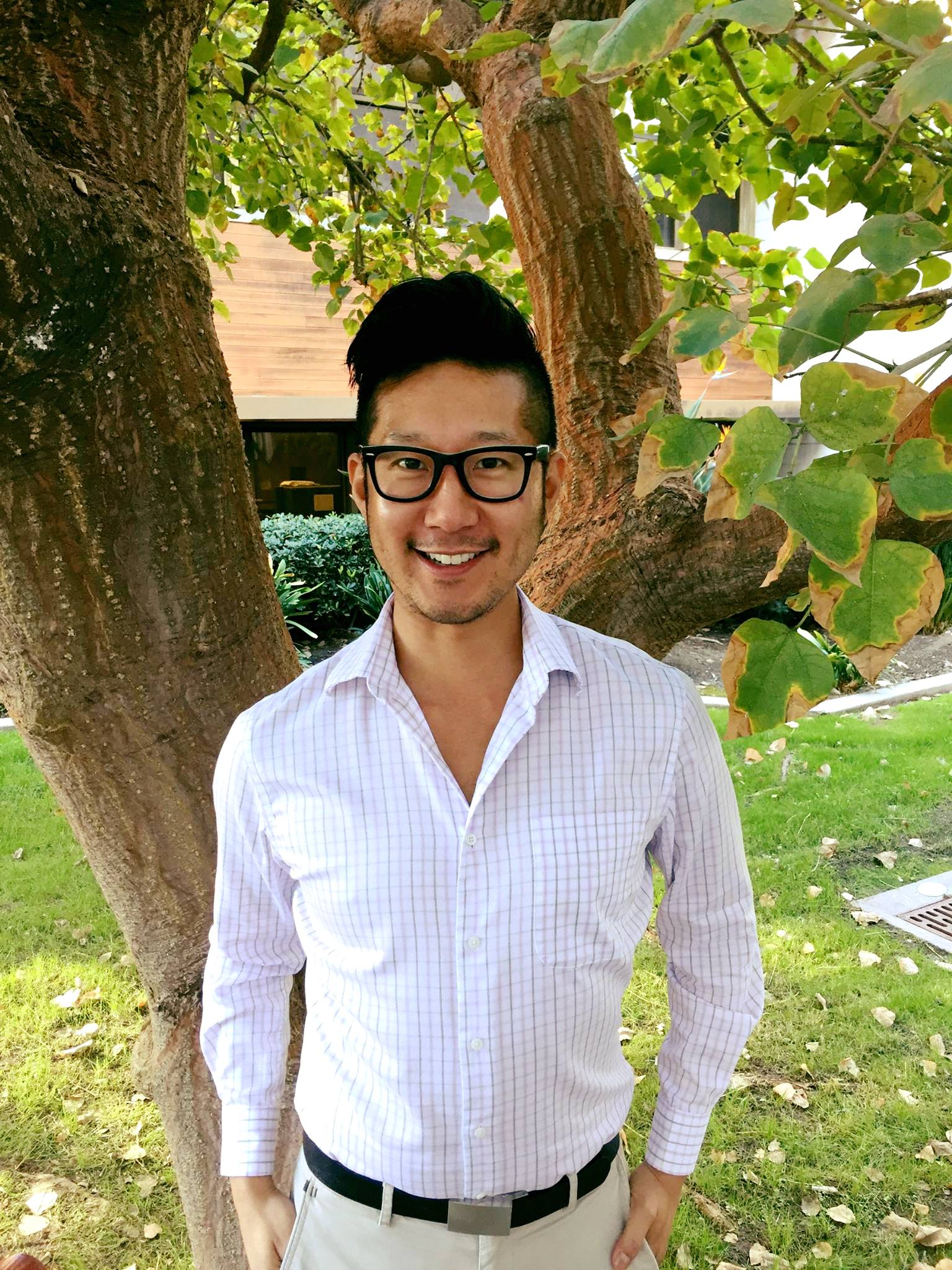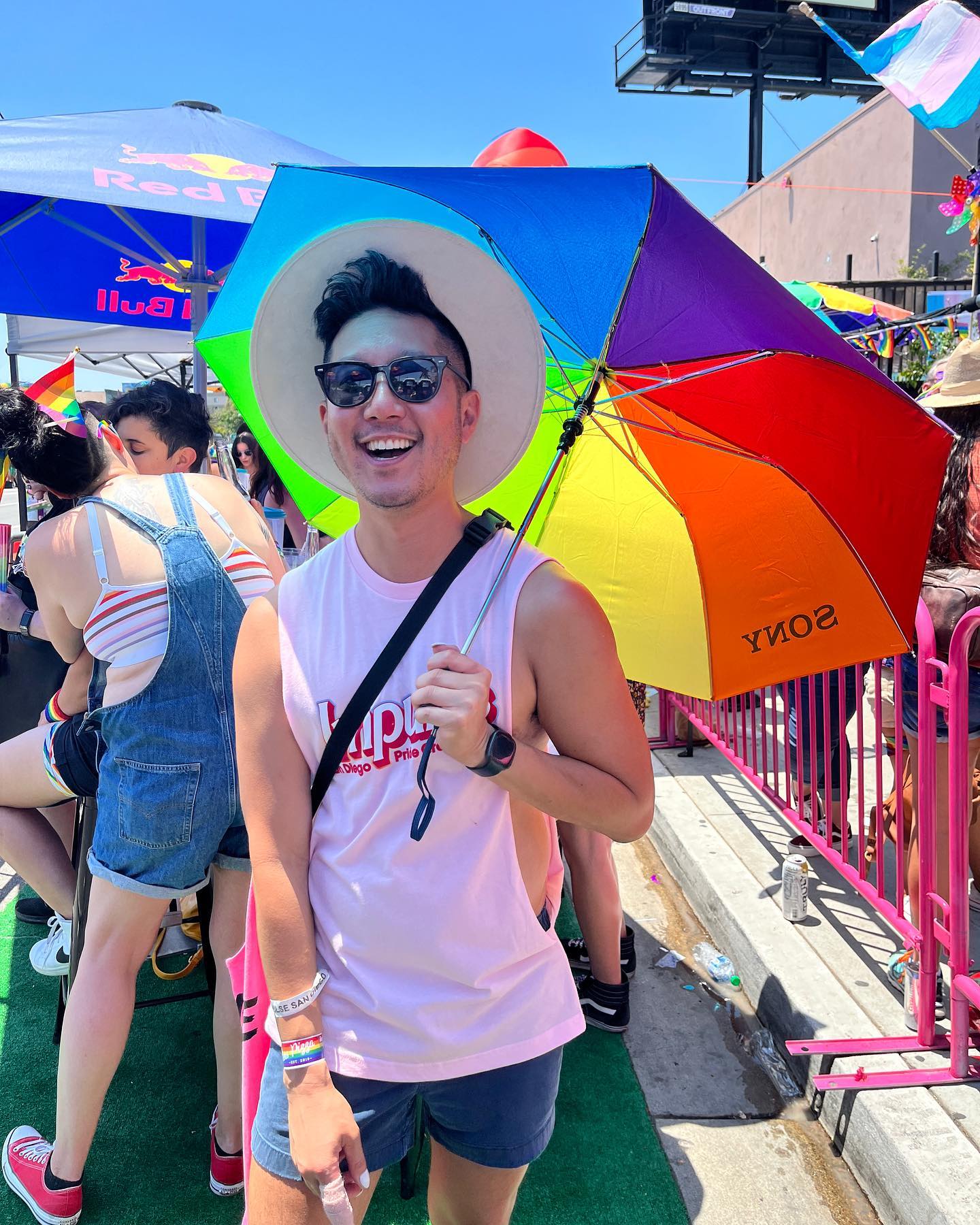Ask Away! Blog Series with Marvin Hanashiro
Welcome to our Pride Month edition of the Ask Away! Blog Series, where we celebrate the incredible contributions of LGBTQ+ individuals in healthcare and research. This month, we are excited to feature Marvin Hanashiro, the Community Engagement Manager for the UC San Diego AntiViral Research Center.
Marvin has dedicated over 18 years to clinical research at UC San Diego, specializing in research coordination and community engagement for studies on HIV and other infectious diseases. His commitment to diversity, equity, and inclusion has been recognized with the 2019 UC San Diego Inclusive Excellence Award. Marvin is also a founding member and board member of the Red Dress Party San Diego, a non-profit organization that has raised over $350,000 for local HIV service organizations since 2015.
In our interview, Marvin shares insights from his remarkable journey in clinical research, effective strategies for fostering community partnerships, and his ongoing efforts to ensure inclusivity in his work. He also reflects on his involvement with the UCSD Health Equality Group and the evolution of the Red Dress Party San Diego.
Join us as Marvin discusses his experiences and offers a powerful message for the LGBTQ+ community this Pride Month. Read on to be inspired by his dedication to making a positive impact in the field of healthcare and beyond.
Can you share your journey into clinical research and what inspired you to focus on HIV and other infectious diseases?
When I was growing up in Arizona, abstinence-based education was the only approved sexual health education in school, but I knew my peers were sexually active and not receiving factual information about sexually transmitted infections (STIs). So, I made it my mission to provide sexual health awareness outside of the constructs of the school system by organizing STI awareness events and providing free condoms (with the guidance of amazing mentors). Fast forward through my activism in college, coming out as gay, passion for science, and moving to San Diego, I was confident I could contribute to HIV prevention and treatment efforts by working in research for UC San Diego. So, my first professional job was as a recruiter for HIV research studies at the UC San Diego HIV Neurobehavioral Research Program in 2003.
Your role at the UC San Diego AntiViral Research Center involves significant community engagement. What strategies do you find most effective in fostering strong community partnerships?
Be flexible, show up, and meet people where they are and most comfortable to earn trust. There is so much strength in meeting people face to face, shaking hands, and sharing your personal story and common interests.
Diversity, equity, and inclusion are central to your work. How do you ensure these principles are integrated into the clinical research studies you coordinate?
We have to help people feel seen and represented, by creating more avenues for people to participate in research. For example, during the initial COVID-19 vaccine trials the AVRC conducted, I was tasked to form new partnerships with community groups and government officials all over San Diego County to stage mobile study vaccine sites so people did not need to travel to our home base in Hillcrest.
We also recognized that a person’s gender and ethnicity were not always aligned with research standards, so we created our own intake forms and pushed to make them representative system-wide.
Recently, I have been working on recruitment for a study on an HIV cure, and with the assistance of community stakeholders, we were asked to organize an informational town hall for a mostly Spanish-speaking LGBTQ+ audience at the SD LGBT Center (the venue was specifically requested) and pay for simultaneous Spanish interpretation. I felt it was a very successful event because the audience was very engaged and asked smart and serious questions.
When asked to accommodate the needs of our diverse community, we should do our best to honor them so people feel seen and involved.
Congratulations on receiving the 2019 UC San Diego Inclusive Excellence Award! Can you tell us more about the initiatives or projects that led to this recognition?
Aside from the contributions of the Red Dress Party, one of my proudest initiatives was organizing a monthly free gender-affirming clothing event for transgender and non-binary individuals with the support of community members in a safe environment, while incorporating HIV testing and other requested resources.
As a planning member of the UCSDH Equality Group, what are some of the key social engagement activities you’ve helped organize, and what impact have they had on the LGBTQ+ Health Sciences community?
I only started co-planning events in July 2023. Our planning group has organized happy hours, volunteer events in the community, game nights, as well as outdoor activities. The feedback I have received is positive, because it’s an opportunity for faculty and staff to network in a variety of ways.
The Red Dress Party San Diego has raised substantial funds for local HIV service organizations. What motivated you to co-found this event, and how has it evolved since its inception in 2015?
My co-founder, Steven Shyne, and I wanted to put the “fun” in fundraising and also shared a passion for raising HIV awareness in our community. We started with a GoFundMe campaign for $10K to initiate funding for our inaugural event, which we raised in three days, so we knew we had an audience. Since then we have continuously grown to form a fabulous team of board members, volunteers, and business sponsors who support each other and have allowed us to celebrate our 10th anniversary this year.
In your 18 years at UC San Diego, what changes have you observed in the approach to HIV research and treatment, particularly concerning the inclusion of diverse populations?
Since I started at UC San Diego, I have seen extremely positive changes in HIV research and treatment, like using inclusive and less stigmatizing person-first language. I have also seen a shift to include more community input and engagement throughout the development and implementation of new studies.
As we celebrate Pride Month, what message would you like to share with the LGBTQ+ community, particularly those involved in healthcare and research?
Let’s continue to embrace and celebrate the rich diversity of our community through connection with one another and taking action in the causes that are most important to you. Then we can take pride in being active members and positive changemakers in our community!
--
As we celebrate Pride Month, Marvin's story reminds us of the importance of embracing diversity and taking action to create positive change in our communities. His dedication serves as an inspiring example for LGBTQ+ individuals in healthcare and research, encouraging all of us to stand proudly and advocate for a more inclusive future.
ACTRI Communications

